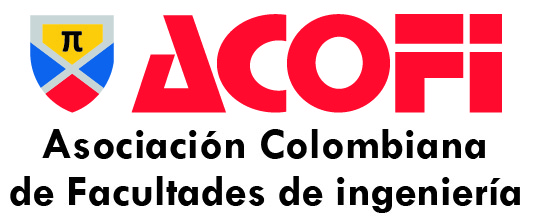Intelligent agent and VARK Model, propose learning strategies according to how they assimilate an individual
DOI:
https://doi.org/10.26507/rei.v13n26.878Abstract
This article presents the results of research obtained through the use of Artificial Intelligence, specifically Intelligent Agents that automatically propose appropriate strategies to take advantage of the predominant learning style of a person to improve their autonomous learning abilities. This investigation was based on the application of the VARK model to a sample of students who registered for the class “Structured Programming”. The task of solving the problems and generating the appropriate computational based tools initially proved difficult for the students (over 60% of the students were failing the course). The Artificial Intelligence identified that the majority of the participating students responded best to visual or auditory aids, and that the appropriate strategies chosen by the system for each individual were: reading, audiovisual material, concept maps and infographics. The project utilized quantitative research techniques and was evaluated using direct closed surveys.Downloads
References
Freire, P. Pedagogia do Oprimido. 25 ª ed., 1ª ed., 1970, Rio de Janeiro: Paz e Terra. 1998.
Gardner, H.,Arte, mente y cerebro. Barcelona: Paidós, 1997.
Dunn, R., Dunn, K. and Price, G.E., Identifying individual learning styles. In: National Association of Secondary School Principals (US). Student learning styles: diagnosing and prescribing programs. Reston, Virginia: Natl Assn of Secondary School, 1979, pp. 39-54.
Ramírez-Espejo,P., Una maestra especial: María Montessori. Revista Digital Innovación y Experiencia Educativa. [En línea]. No. 14, 2009. Disponible en: http://www.csisif.es/andalucia/modules/ mod_ense/revista/pdf/Numero_14/PILAR_RAMIREZ_2.pdf
Bloom, B.S., Taxonomy of educational objectives: The Classification of Educational goals, Handbook I, Cognitive Domain. Nueva York, Toronto: Longmans, Green. [online]. Available at: http://www.aulatres.net/ 1/curs_wq/pagines_secundaries/taxonomia_bloom.htm 1956
Kolb, D.A., Rubin, I.M. y Mcintyre, J.M., Psicología de las organizaciones. Problemas contemporáneos. Prentice/Hall International. Madrid, 1976.
Aparicio, M.M., Modelo Vark. Facultad de Maestrías y Estudios de Postgrado, Universidad Tecnológica, 2014, pp. 12-20.
Rollins, M., Learning style diagnostics: the Grasha-Riechmann student learning styles Scale. 2015. [online]. Avaialbel at: https://elearningindustry.com/learning-style-diagnostics-grasha-riechmann-student-learning-styles-scale
Pérez-Jimenez J., Programación neurolinguística y sus estilos de aprendizaje. [En línea]. 2001. Disponible en: http://www.aldeaeducativa.com/aldea/tareas2.asp?which=1683
Felder, R.M. y Spurlin, J., Aplicaciones, confiabilidad y validez del índice de estilos. [En línea]. 2015. Disponible en: http://www.icels-educators-for-learning.ca/index.php?option=com_content&view=article&id=47& Itemid=64.
Felder, R.M. and Henriques, E.R., Learning and teaching styles in foreign and second language education. [online]. Available at: http://www4.ncsu.edu/unity/lockers/users/f/felder/public//Papers/FLAnnals.pdf
Weinstein, C.E. and Mayer, R.E., The teaching of learning strategies. In M.C. Wittrock (Ed.), Handbook of research on teaching, New York: McMillan, 1986.
Wittrock (Ed.), Handbook of research on teaching. New York: McMillan, 1986, 315 P.
Dansereau, D.F., Learning strategy research. In: Segal, J.V., Chipman, S.F. and Glaser, R. (Eds.), Thinking and learning skills. Vol 1: Relating instruction to research. Hillsdale, NJ: Erlbaum, 1985.
Schunk, D.H., Learning theories. An educational perspective. Six Ed. The University of North Carolina at Greensboro, Pearson, New York, 2012.
Weinstein, C.E. and Mayer, R.E., The teaching of learning strategies. In Wittrock, M.C. (Ed.). Handbook of reserch on teaching, New York, McMillan, 1986.
Weinstein, C.E. and Underwood, V.L., Learning strategies. The how of learning. In Segal, J.V., Chiprinan, S.F. and Glaser, R. (Eds.). Thinking and learning skills. Vol. 1 Hallsdale, NJ: Eribaum, 1985, 30 P.
Vargas, Q.B. y Hipola, P., Agentes Inteligentes: definición y tipología. Los agentes de información. El Profesional de la Información, 8(4), pp. 13-21, 1999.
Russel y Norving. Inteligencia artificial. Un enfoque moderno. 2da. Edición. Prentice Hall, 2009.
Castells, M., Lección inaugural del programa de doctorado sobre la sociedad de la información y del conocimiento. Documento presentado en Inauguración doctorado sociedad de la Información, Barcelona: Editorial UOC. [En línea]. Disponible en: http://www.uoc.edu/portal/es/
Valle, A., González, C., Ramón, C.G., Lino. M. y Fernández-Suárez, A.P., Las estrategias de aprendizaje: características básicas y su relevancia en el contexto escolar. Revista de Psicodidáctica, [en línea]. 1998, [Fecha de consulta: 21 de enero de 2018]. Disponible en:http://www.redalyc.org/articulo.oa?id=17514484006
Johnson, W.L, Rickel J.W. and Lester, J.C., Animated pedagogical agents: faceto-face interaction in interactive learning environments. International Journal of Artificial Intelligence in Education, 11(2000), pp. 47-78, [En línea]. Disponible en: http://citeseerx.ist.psu.edu/viewdoc/download?doi=10.1.1.7.7812&rep=rep1&type=pdf
Murias, T.F., Desarrollo de la evaluación apoyada en agentes inteligentes: el caso del proyecto Teaching tutoring intelligent agents to customise life long learning path ways in microfinance sector. Universidad Nacional de Educación a Distancia, España, pp. 688-699, 2014.
Clancey, W., Knowledge-based tutoring: the GUIDON Program. Cambridge, MA: MIT Press. 1987.
Anderson J., Corbert A., Koedinger K. and Pelletier R., Cognitive tutors: lessons learned. The Journal of the Learning Sciences, Lawrence Erlbaum Associates, Inc.(eds), 4(2), pp. 167-207, 2002.
Alonso, C.M., Gallego, D.J. y Honey, P. Recursos e instrumentos psicológicos. Los estilos de aprendizaje. Procedimientos de diagnóstico y mejora. Cuarta edición, Universidad de Deusto, Ediciones Mensajero, España, 2013.
Peña, C.I. et al., Un sistema de tutoría inteligente adaptativo considerando estilos de aprendizaje. Revista UIS Ingenierías, 1(2), pp. 17-29, 2002. [En línea]. Disponible en: http://vie.uis.edu.co/index.php/revistauisingenierias/article/view/2508.
Felder, M.F. and Silverman, L., Learning and teaching styles in engineering education, Ingenieering Education Journal, 78(7), pp.674-681, [En línea]. Disponible en: https://s3.amazonaws.com/academia.edu.documents/31039406/LS-1988.pdf?AWSAccessKeyId=AKIAIWOWYYGZ2Y53UL3A&Expires=1519573150&Signature=UiYe%2FK6lpPKIPn7mveyZtrVOXFA%3D&response-content-disposition=inline%3B%20filename%3DLearning_and_teaching_styles_in_engineer.pdf
Cazau, P., Estilos de aprendizaje. Compilación de Estrada-Tizcareño, L. I. [En línea]. Disponible en: https://es.scribd.com/document/237000756/Estilos-de-Aprendizaje-generalidades-Pablo-Cazau
Bernice, M., Modelo 4MAT: 8 pasos para planificar una enseñanza más dinámica y atractiva. Learning. About Learning, Inc. [En línea]. Disponible en: http://ww2.educarchile.cl/UserFiles/P0001/File/present_ bernicemccarthy.pdf
Fleming, N.D., Teaching and learning styles: VARK strategies, Editorial Christchurch, Nueva Zelanda, 2001.
Downloads
Additional Files
Published
Versions
- 2023-08-28 (2)
- 2018-08-01 (1)
How to Cite
Issue
Section
License
Total or partial reproduction of the documents published in the journal is authorized only when the source and author are cited.
| Article metrics | |
|---|---|
| Abstract views | |
| Galley vies | |
| PDF Views | |
| HTML views | |
| Other views | |









